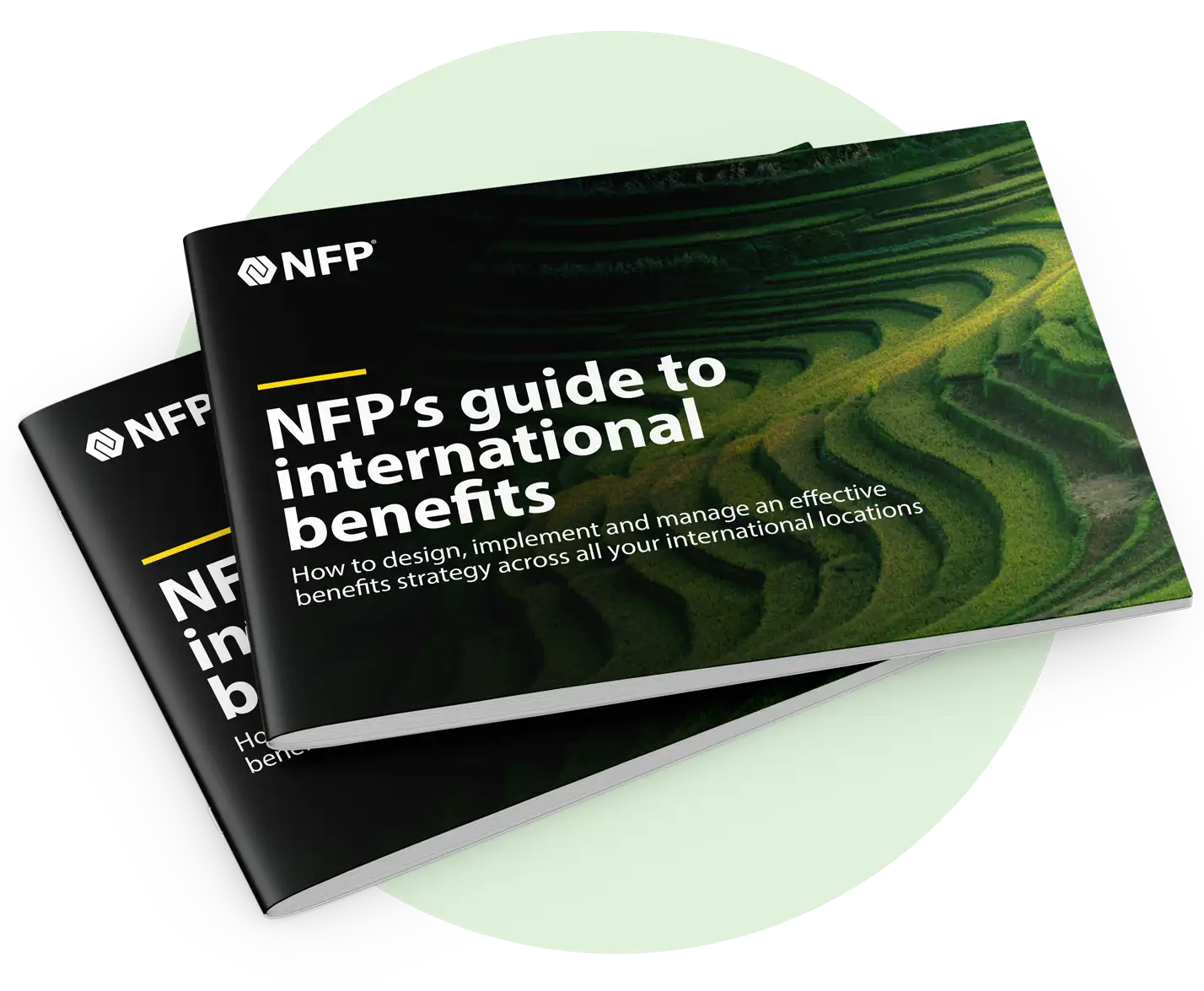Creating expat Utopia
Internations recently released its annual Expat Insider 2024 survey, which details the best countries to work in as voted for by real expats, based on key areas such as Career Prospects, Salary & Job Security, Work Culture & Satisfaction, and Work & Leisure. In this article, one of our global employee benefits specialists, Damien Weston, runs you through Internations’ top 5 places to work as voted for by expats, as well as what businesses that operate in these countries could consider when designing their expat benefits strategy.
Key takeaways
- Learn the top 5 places to work in the world, as voted for by expats
- Understand key differences to consider in each of these countries
- Discover key expat benefits strategy considerations for businesses that operate in these countries
Fifth place: Luxembourg
Here are some key expat strategy considerations for Luxembourg:
- Many expats will be cross-border commuters: For your Luxembourg expats that live in neighbouring countries, how might you best support their wellbeing? Could you look to make cross-border commuting easier and/or cheaper?
- Locals have more favourable tax treatment: Consider providing education to make sure your expats are aware of the tax structure and that they will likely get different tax treatment to Luxembourg nationals.
- Most benefit plans are provided to locals only: Many cross-border commuters cannot take advantage of all benefit policies if they are not in-country to use them, which is the case for benefits such as local medical. Think about how your strategy in Luxembourg may be more accommodating to these expats and allow them to take advantage of the great benefits you offer.
Fourth place: Netherlands
Here are some key expat strategy considerations for The Netherlands:
- Medical coverage: In the Netherlands, medical benefits are the employee’s responsibility to source, this rule also applies to expats who are staying longer than 3 months. Their healthcare system is strong compared to many other countries and very robust, but this is a key difference compared to many other countries that expats will need to be educated on.
- Child benefits: The Netherlands offers several benefits and allowances to support working parents with costs associated with childcare and schooling. Notifying your expats of these entitlements could not only support their decision to move abroad but could also contribute to the wellbeing of them and their family once they arrive.
- Tax breaks: Expats need to be aware of the two tax breaks that they could be eligible for in The Netherlands, the general tax credit and labour tax credit.
Third place: Belgium
Here is what you should know about Belgium:
- Eco-cheques: These are mandatory vouchers provided by employers for employees to put towards environmentally friendly purchases. Offering expats financial support for items such as energy efficient appliances or a bike to cycle to work may therefore be key to ensuring you are at least in line with your competition in Belgium.
- White and blue-collar workers get the same benefits: As an employer, you cannot discriminate against white and blue-collar workers. What you offer to one employee must be offered to all employees, meaning that, unlike in Luxembourg, what you offer the locals in Belgium you must also offer your expats.
- Complex state structure: While the state of Belgium is mostly federalised, each of the three non-converging regions has their own rules and policies covering important areas such as housing, childcare and healthcare. It’s therefore vital that your expats are educated on any key differences that affect the region they live and/or work in.
Second place: Saudi Arabia
Some key considerations for your expat strategy in Saudi Arabia, are:
- Strong expat allowances: As there are many expats in Saudi, it is common for employers to pay for schooling for expat children, provide housing allowances, and even cover the cost of return flights to the expat’s home country 1-2x per year.
- Generous medical plan: Medical plans are one of the more attractive benefits to Saudi employees. As such, it is common for competitive benefits plans to have a very strong medical plan that allows treatment across the world to particularly appeal to expat employees.
- ‘Saudization’: To ensure locals are hired alongside expats, there are strict requirements against differing benefits packages for both groups. As expats tend to have richer benefits, this leads to local employees now receiving very rich packages as well.
First place: Denmark
Here are things to bear in mind when designing your expat benefits strategy in Denmark:
- Language barrier: Official benefits communications must be done and provided in Danish, so you will need to think about how to ensure your expats stay informed. Do you enrol them in compulsory language classes? Or look to translate these documents into their native language?
- Difficult visa process: Getting a visa may be a complex and lengthy process, especially for those from outside the EU and EEA. If you operate in Denmark, you should therefore think about offering support to expats with their visa application process as part of your competitive strategy.
- Cover flexibility: Employees have flexibility to amend their levels of cover to suit their needs, e.g. those with no dependants may decrease life insurance in favour of other, more relevant types of cover. Therefore, your benefits strategy will need to include types of cover that all employees will find valuable to remain competitive.
NFP's guide to international employee benefits
With more benefits, reward and HR professionals taking on multinational responsibilities, our team of experienced international benefits consultants have created this guide to share their insight into the key aspects of running a successful international benefits programme.
In the comprehensive guide, you'll learn
- What to consider when designing your global benefits strategy
- How to identify the right benefits and provider(s) to deliver them
- How to efficiently run your global benefits programme
- How to review and maintain oversight of your programme


Author
Damien Weston, International Benefit Consultant
Damien has over 23 years of experience in UK and international benefits and is responsible for working with prospects and new clients, strategically working with several key accounts to ensure benefits remain appropriate for their worldwide employees.